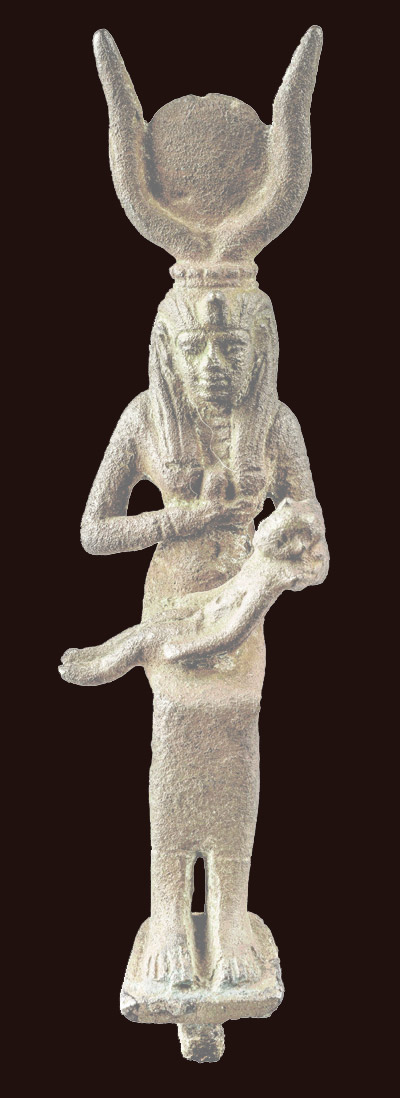In early periods, as illustrated in the Homeric poems and Greek mythology, the attitudes of the ancient Greeks toward healing were not very different from those of the Babylonians and Egyptians. They believed that the gods caused and cured diseases. One of the most emblematic examples of the role of Greek religion in medicine is the opening of Homer’s Iliad. A plague devastating the Greek soldiers besieging Troy is depicted as divine in origin, having been sent by Apollo as punishment for the Greek leader Agamemnon’s mistreatment of his priest Chryses. A belief in divine intervention in human affairs would continue for many centuries, coexisting with the secular practice of what we call rational medicine.
On display are a series of household artifacts showing objects of devotion from the Egyptian town of Karanis and other parts of Egypt. Horus-Harpocrates, Isis-Aphrodite, and Anubis were three of the most popular deities, demonstrating the persistence, and coexistence, of Egyptian and Greek religion in the Roman province of Egypt.
The practice of magic is widely attested in the ancient Mediterranean world, persisting even after the establishment of Christianity as the official religion of the Roman Empire in the fourth century. Though this is not the place to engage in an in-depth discussion about the relationship between religion and magic in the ancient world, broadly speaking, in recent years scholars agree about the need to depart from the drastic dichotomy established by the anthropologist James Frazer more than a hundred years ago. According to Frazer, the magician coerces the divinity to do his will, whereas the religious practitioner acts as a supplicant, submitting himself or herself to the will of the deity. However, the actual evidence rather suggests that there is also much fluidity, and continuity, between the two worlds. The magician often borrows, or appropriates, the language of prayer from well-established religious rituals to establish the typical contract-like, binding relationship between a person and a deity, the essence of Graeco-Roman religion.


